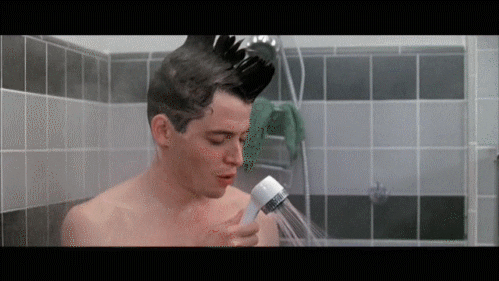There’s a lot that goes into being a successful singer. You have to have the right voice, be able to hold a tune, and know how to project your voice. But there are also other things that singers know all too well.
Here are some thing singers should know – and some things singers know too well!
What a Singer Must Know?
Being a singer requires more than just being able to carry a tune. There are many different things singers should know in order to be successful.
- A singer must have good breath control in order to sing with power and control.
- They must also be able to use their diaphragm correctly in order to project their voice.
- A singer must have a good ear for pitch and be able to tune their instrument (their voice) correctly.
- They should have a basic understanding of music theory in order to understand how to create harmonies and melody.
- A singer must have stage presence and be able to command an audience’s attention.
While this list of things to know for beginner singers is not exhaustive, it does highlight some of the important skills that a singer must possess. With hard work and dedication, anyone can develop these skills and become a successful singer.
Ready to become a full-fledged professional singer? Your first step is to sign up for singing lessons. This will give you the skills and confidence you need to be a great performer. Get an idea of what you’ll cover in your singing lessons by watching the video below:
https://www.youtube.com/watch?v=CM9TQRoZJdw
What to Know Before Becoming a Singer
Becoming a singer is a dream for many people. After all, who wouldn’t want to be able to share their talents with the world?
However, there are a few things you should know before taking the plunge into a singing career.
First and foremost, it takes a lot of hard work and dedication. You’ll need to put in long hours of practice to perfect your craft. In addition, you’ll need to be comfortable performing in front of large audiences. If you’re not prepared to handle the pressure, then a singing career may not be right for you.
Finally, you should be aware that the competition in the music industry is fierce. If you’re not willing to hustle and grind it out, then you probably won’t make it as a singer.
So if you’re thinking about becoming a singer, make sure you know what you’re getting yourself into. It’s not all glory and fame; there’s a lot of hard work that goes into making it in the music business.
What Skills Should Singers Have?
In order to be a successful singer, one must have a strong vocal technique. This means having a good command of breath support, vocal placement, and a well-developed vocal range. In addition, singers need to be able to control their vibrato and use it as an expressive tool.
Another important skill for singers is the ability to interpret a song. This means being able to convey the emotion of the song and connect with the lyrics. Singers also need to have stage presence and be able to connect with an audience.
Finally, it is important for singers to be able to sight-read music and have some basic knowledge of music theory.
While not all singers need to be virtuosos, these skills are important for anyone who wants to pursue a career in singing.
Things All Good Singers Should Know
No matter what level of singer you may be, there are some basic skills and knowledge that every singer should possess. This includes knowing how to take care of your voice, how to warm up properly, and understanding the basics of vocal anatomy. By learning these essential things, you can help ensure that your vocal health is protected and that your singing voice is at its best.
But what about all those things that singers know – that are less technical, but instead, about the experience of singing itself? Let’s take a look!
15. For some reason, your voice always sounds extra amazing in the shower.

So work it! The shower is basically your own personal vocal booth. The small space and smooth hard walls give you a volume boost plus a healthy dose of reverb. What singer doesn’t love that?
14. That awkward moment when you are the only person singing along.

What? I love this song!
Some people might not get it, but for singers, grooving along to that certain, special song can feel like heaven on earth. When the mood strikes you, sing it loud!
13. When your voice cracks in a performance and you hope nobody noticed.

Yeah, it happens to all of us. Don’t worry, most people won’t notice or remember! Even though you’re cringing on the inside, stay cool and keep going. You’ve got this.
12. You never underestimate the power of a good hair flip.

It’s called “hairography,” and you’re all over it.
Even if you have short hair, you can still add drama to a performance with a toss of your head or a gesture with your hand. Practice in the mirror and find your signature move to amp up your next performance.
11. You have that one note that you always struggle with.

Maybe it’s that pesky note that sits between your head voice and your chest voice. Maybe it’s that note on the edge of your range that you can just barely reach. Whatever it is, keep learning singing techniques and keep trying. With practice, you’ll figure out how to hit it just right.
10. No matter how badly you want pizza, you refuse to eat dairy before a performance.

Every singer knows to avoid dairy like the plague before stepping on stage. Dairy products contain fats that can thicken the mucous lining in your throat, leading to some stuffy-feeling vocal cords. But after the show, that pizza better watch itself!
9. You will chug hot tea in any weather to keep your throat feeling smooth.

It’s 100 degrees in the shade? I didn’t notice, because I sound fabulous.
Stick to herbal teas and avoid caffeine as much as you can. Caffeinated beverages can also dehydrate you and dry your vocal folds.
8. And when you do catch a cold, it feels like the end of the world.
WHAT DO YOU MEAN I CAN’T SING TODAY?????
Singing with a sore throat is a pretty big no-no. However, using throat numbing medications and then singing is even worse and can seriously damage your voice. If you’re not feeling well, give your voice some much-needed rest until you recover.
7. But when you get your voice back…

This is the best day of your life! You are dancing around the house singing into your hairbrush. You can’t wait for your next performance! And speaking of performing…
6. Did you say karaoke?

Let’s go now!
Karaoke is a great place for you to get experience using singing techniques with a microphone and practice performing with your friends. You can even practice at home by looking up the karaoke tracks to your favorite songs on YouTube.
5. You know random bits and pieces of other languages.

And you know how to pronounce them perfectly. From singing a French song with your choir to tackling German or Norwegian songs with your voice teacher, learning music is bound to open you up to other cultures. Singing in a foreign language is a great way to focus on your technique and learn how to deliver a more expressive performance.
4. You mind your vowels.

Diphthongs and long and short vowels can be a stumbling block when you’re starting out. But once you get more experience with singing, you’ll know how to pronounce your vowels to create the best vocal tone. Bonus points for singing uniform vowels in a group setting!
3. You study your sheet music whenever you can.
And especially right before bed. Studies have shown that studying before you go to sleep improves your memory. Be sure to get a good night’s sleep while you’re at it. Your body is your instrument, and sleep definitely helps keep you in tune.
2. When you’re delivering a great performance, you feel like this:
There is nothing better than standing in the spotlight and knowing that you’re doing your best! After all your years of vocal training and practice, it’s your time to shine. Enjoy your time on stage and always remember to have fun.
1. Singing is emotional for you.
Singing is one of the best ways to express yourself and let all your emotions out. Singing can make you feel better when you’re down in the dumps, or it can help you share your joy when you’re feeling great. One of the best reasons to sing is because it just feels good!
A Few More Things Singers Need to Know
If you’re a singer, you know how important it is to have a good voice. But there’s more to being a successful singer than just having a great voice.
You also need to be able to control your breathing, and learn how to project your voice so that you can be heard over the instruments. In addition, it’s important to be able to read sheet music, so that you can follow the melody and stay in tune with the other singers.
And finally, you need to have stage presence. This means being able to connect with your audience and convey the emotion of the song. If you can master all of these things, you’ll be well on your way to becoming a successful singer.
Things to Know About Singers
There are many things that people don’t know about singers. For example, did you know that a singer’s vocal cords are two muscles that vibrate when air passes through them?
The vocal cords are located in the larynx, which is also known as the voice box. The larynx also houses the vocal folds, which are two pieces of tissue that come together to make sound. When the vocal folds vibrate, they create sound waves that travel through the air and into your ears.
The pitch of a singer’s voice is determined by how fast the vocal cords vibrate. The higher the pitch, the faster the vibration. The lower the pitch, the slower the vibration. The volume of a singer’s voice is determined by how much air is passing through the vocal cords. The more air that passes through, the louder the sound.
Singers can control both the pitch and volume of their voices by using their breath and muscles to change the shape of their vocal cords.
While anyone can learn to sing in any range, most people find that they are naturally more comfortable singing in one range than another.
As a result, many singers choose to focus on expanding their range within their natural range rather than trying to force themselves into a higher or lower range. By understanding the different types of voices, singers can better identify their own strengths and weaknesses, and work to develop their skills accordingly.
What Are the 2 Most Important Things to Singing?
There are many elements to good singing, but the two most important things are breath control and vocal placement. Breath control is the ability to take in a deep breath and use it to sustain a long phrase. This requires strong lungs and abdominal muscles.
Vocal placement is the ability to place the voice in the correct part of the throat. This ensures that the sound is resonating properly and that the pitch is accurate. Both of these elements are essential for good singing.
Without breath control, a singer will quickly run out of air and be unable to sustain a note. Without proper vocal placement, the sound will be nasal and unpleasant. singers must learn to control their breathing and place their voices correctly if they want to produce a beautiful sound.
So, the next time you feel like belting out a tune or two (or three), remember that you’re in good company. Singers have known for years just how great singing can make you feel – both physically and emotionally.
And now, we know why. So go ahead and sing your heart out – it’s good for you! And if you haven’t signed up for singing lessons, be sure to do so.
What do you think, singers? As you’re learning singing techniques in your voice lessons, these habits have a way of popping up in daily life. Tell us in the comments if there’s anything we missed!
Featured photos by David Martyn Hunt, Liliane Callegari
Megan L.





